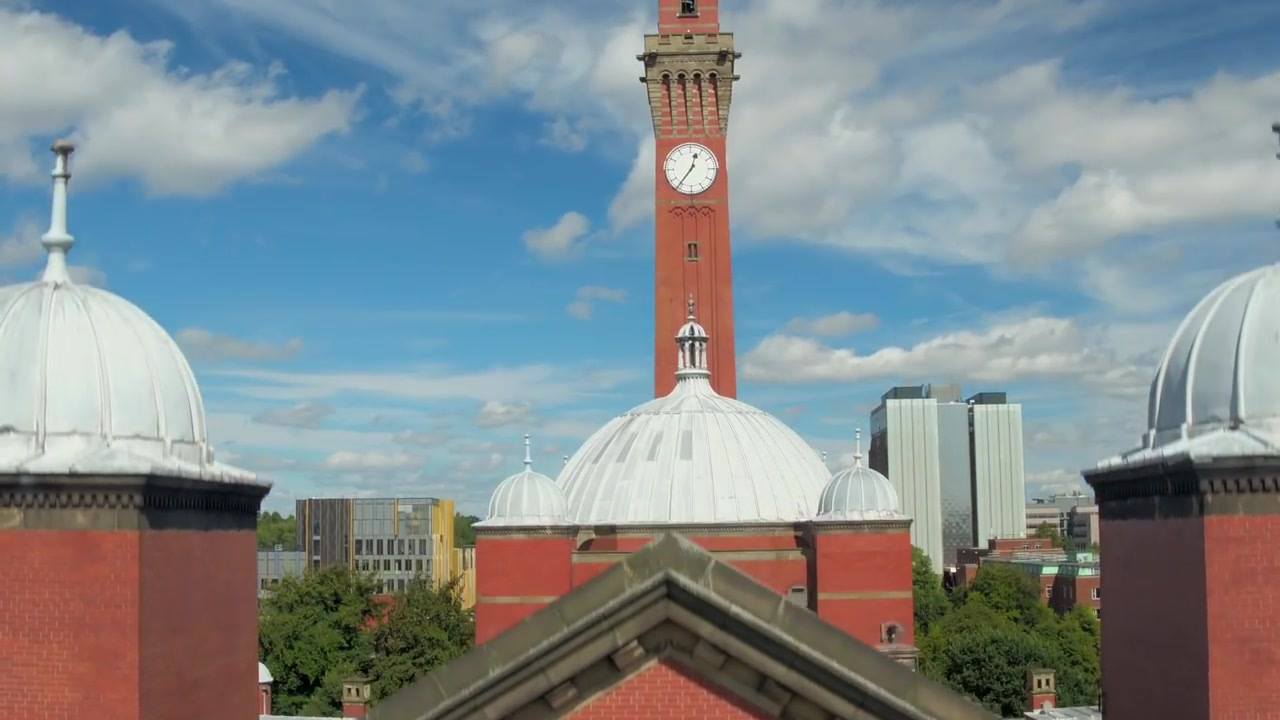Edgbaston, Birmingham B15 2TT, United Kingdom
Career Counselling

The University of Birmingham is a global top-100 university located in the West Midlands of the United Kingdom. With over 38,000 total students, it is a significantly international university, with 25% of students and 31% of the academic faculty from countries outside the United Kingdom.
Academic and research activity at the University is provided through five Colleges: Arts and Law, Engineering and Physical Sciences, Life and Environmental Sciences, Medical and Dental Sciences, and Social Sciences. Within these, there are 35 Schools providing special...
| Establishment year | 1900 |
| Total Students | 38,000 |
| International Students | 8,700 |
| QS World University Rankings 2024 | 84 |
| Campus Size | 672 acres (UK campuses) |
| Total Number of Campuses | 3 (Edgbaston, Selly Oak, Dubai) |
| University Website | https://www.birmingham.ac.uk/ |
| No. of Schools and Divisions | 5 Academic Colleges (Arts and Law, Engineering and Physical Sciences, Life and Environmental Sciences, Medical and Dental Sciences, Social Sciences) |
| Nobel Prize Winner Alumni | 10 (alumni and staff members) |
| No. of Education Programs | 323 (undergraduate), 600+ (postgraduate) |
| Student to Faculty ratio | 7:1 |
The University of Birmingham offers undergraduate and postgraduate courses through 5 Colleges, which are further subdivided into schools and departments.
The University of Birmingham has a fairly high acceptance rate: in 2017, the UCAS report on offer rates showed that nearly 82% of undergraduate applicants received an offer to study at the University. However, it must be kept in mind that many UG and PG courses are competitive, and their offer rates may be substantially lower than this figure.
The most important entry requirement for undergraduate applicants to the University of Birmingham is academic performance, as shown by the averaged grades or marks of the top three A-Level (or equivalent) subjects. All applicants need to demonstrate literacy and numeracy: which are gauged through their English and mathematics grades at the high school level. In addition, some medical courses where there is exposure to vulnerable populations require a background check. Students who will not be over the age of 17 in the year in which their program starts will have to wait to apply until the age criterion is met.
Postgraduate admissions to the University are competitive: consequently, applicants are required to have an honors undergraduate degree (or equivalent) with good academic performance. Given the large number of applicants per offer, candidates who live in the UK may be asked to appear for an interview in person before they are selected. Applicants should check the course page before applying: certain programmes require or recommend additional experience or professional qualifications, e.g. in the Business School.
The undergraduate application process to the University of Birmingham should start with a deadline check and timeline planning. Students who wish to join in a given year must submit their applications by 25 January of that year for most courses, or by 15 October of the previous year for Medicine and Dentistry courses.
The “difference maker” for UG applications is usually the personal statement; applicants should ensure that this mentions all the strong points in their profile and that it makes for a compelling read. All materials, including the personal statement, academic records, and additional information, should be submitted through the Universities and Colleges Admissions Service (UCAS) website.
Postgraduate applicants can submit their applications for up to five PG courses through the university portal. The course finder option on the website allows applicants to apply individually to each course of interest: The following are the key elements of the application:
Undergraduate tuition fees at the University of Birmingham for students from the UK are capped at £9,250 for the academic year 2022-23. International and EU students pay substantially higher annual tuition fees that vary with the course: most of these are in the range of £21,000 to £28,560 per year, with clinical and medical course fees set at £46,320. Unlike at many other top universities, the annual tuition fee payable will not increase from year to year; it is a fixed amount.
Tuition fees for postgraduate taught courses vary: for home students, they are approximately £10,000 per year for most full-time Master's courses. For international students, annual tuition fees range from £21,150 to £28,980.
The University also provides estimates for living costs that all students will incur, over and above tuition fees. Essential costs (accommodation, food, etc.) come to almost £9,000 per year on average, while variable costs like travel and clothing could total £5,000 annually.

The University of Birmingham campus showcases a mix of historic buildings, modern architecture, and extensive green outdoor areas. The Barber Institute of Fine Arts is one of the most visually impressive structures on campus; its interior is impressive as well, holding works of art from the Impressionist masters, and hosting plays and music performances. Winterbourne House and Garden is a vintage stately home with botanical gardens surrounding it. The University constantly creates new facilities for students; recent additions to the campus include a state of the art Main Library, a Sports Centre, and a Collaborative Teaching Laboratory that focuses on science and engineering pedagogy and teaching tools.
The sporting facilities at the University of Birmingham are unique in that they welcome national level expert players as well as complete novices who want to learn a sport. There are 56 sports clubs to join, from Ultimate Frisbee to Wing Chun to Golf to Gymnastics. Athletes of the University have gained accolades at the international level, with 12 medals won by students and alumni at the latest Commonwealth Games held in the city of Birmingham in 2022.

The Sports and Fitness Club opened in 2017, and was built at a cost of £55 million. This state of the art facility houses a modern gym, an Olympic size swimming pool, a climbing wall, activity studios for aerobics and related activities, and six squash courts. The Club houses close to 200 different fitness classes on a weekly basis, with a special focus on helping people who are new to swimming get comfortable in the water.
Social activities on the Birmingham campus happen all year round, but the whole University community comes together for two big celebrations every year: the Summer Ball, featuring live music acts and a carnival, and the Winter Festival.
Careers Network is a service provided by the University of Birmingham that guides and supports students as they explore different career paths and try to secure internships and placements. 85.3% of students from the latest graduating class were either employed or pursuing a postgraduate degree within six months of graduating. The QS Rankings put the University at #61 in the world in terms of reputation among potential employers, which is several places higher than the university's overall ranking. Postgraduate students are well placed in industry: High Fliers Research ranked the University in the top five in the UK for top employers looking to hire skilled PG students.
With the total spending for students going up to a maximum of £60,000 per year for medical courses, many students at the University of Birmingham require funding aid to complete their degrees.
The University provides Bursaries primarily to UG students from the UK. The value of these is usually around £2,000 per year.
International students can access detailed scholarship information on the relevant University webpage. In this database, information about the scholarships, the amount of the award, qualifying criteria, and timelines of application can be found. They are organised by country of origin, and there are also scholarships that can be applied for from multiple regions. Each college also offers merit-based UG and PG scholarships; information can be found on the same webpage.
For postgraduate students specifically, there are three prominent scholarships: the Birmingham Commonwealth Games scholarship awards £3,000 to all Masters students from Commonwealth countries. The Global Masters Scholarship has 30 places, and the award amount is £10,000. Finally, the Commonwealth Elite Sport Award, for apex athletes, can defray the entire tuition fees (£25,000).
There are also scholarships in Music (a variable number per year, with a total value of £3,000), and Sports (125 athletes currently, variable amount of award), with the UBSport Scholarship paying out between £4,000 and £8,000.
